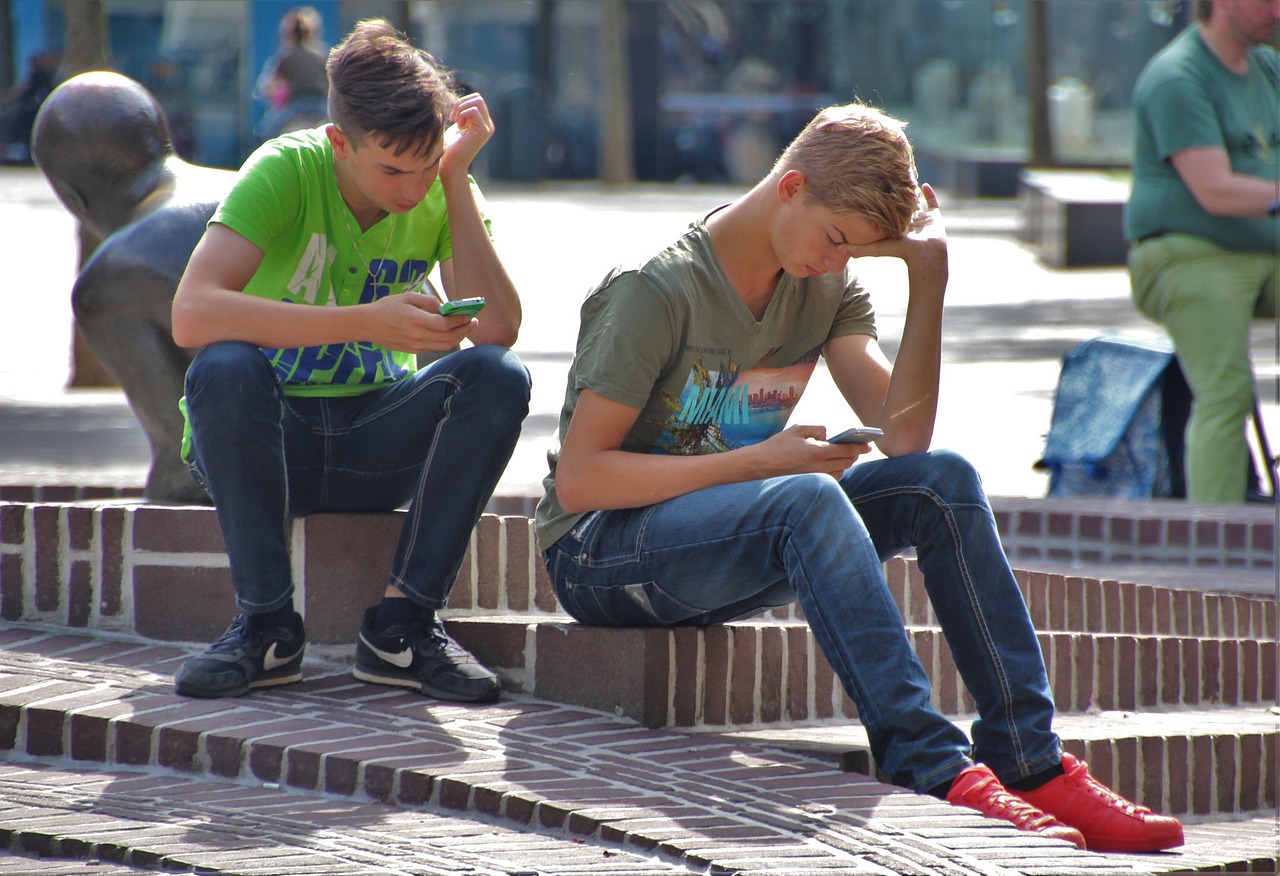Whether you are in a subway or lounging on the sofa with family, take a look around. I am sure you will spot at least one person (or more in a public space) glued to his/her screen.
Even kids are following the suit!
Back in the 90s, we used to exchange our landline numbers with friends. Fast forward to this day, and kids connect with a few taps on a screen. Selfies, status updates, sharing stories, and checking in have become an indispensable part of lives – for kids and adults alike!
This rat race of trying to score the highest number of likes and followers is taking over lives. We brag and showcase our best moments. The failure to achieve anticipated praise makes us feel inferior. Rarely do people dare to post their daily struggles on social media, partially because we don’t believe it matters.
The DataReportal Global Overview report stated that over half of the world now uses social media.
Amid the rising numbers, it is plausible to question ourselves – Are we strong enough to keep ourselves indifferent to the glamorous world portrayed on social media? Is social media dictating our lives?
Let’s explore some possible answers to this concern.
1- It inspires the constant hunger for positive feedback
Next time you hang out with friends, pay attention. Every one of them will likely pull out their phone at least once to check their social media. According to an article in Social Cognitive and Affective Neuroscience, accruing likes on Facebook, Instagram, or Twitter causes “activation in brain circuity implicated reward.”
Another study using MRI technology monitored brain activity and reached similar conclusions. The researchers analyzed the brains of adolescents browsing Instagram. They found that viewing photos with many likes triggered more action in neural regions implicated in social cognition, imitation, reward processing, and attention.
It is about time we face it. Positive reinforcement fed by social media is hard to resist, and this is what makes people addicted to it. Photo and status updates on social media often present an idealized version of a person’s reality.
2- It makes you feel bad about yourself
As you scroll through your Instagram feed, you spot hundreds of photos from celebrities, strangers, and fellows flaunting their “perfect” lives. Whether they are walking on the red carpet or dining at a fancy restaurant, you can’t help but feel jealous of these people. You wish your life was half as fun and happening as theirs!
Despite sparking these feelings of envy, you can’t look away. It is as though you enjoy using their posts as a stick to beat yourself up. Within minutes, you can spiral down into a pit of despair and self-loathing.
A study by the University of Copenhagen provides that we start feeling envious when comparing our everyday lives with other people’s highlighted reel. And indeed, this is what social media is all about. It is about showcasing the picture-perfect moments of your life out there and race for likes.
Envy can feel like an annoyance on a day-to-day level. However, its impact accumulates over time. A piece published in the journal Science stated that envy and physical pain deploy the same brain regions.
After constant exposure to social media, we might turn into bitter individuals who overanalyze their shortcomings instead of living their lives.
3- It is making people feel lonely
Social media has the powerful ability to dictate lives and consume people. The aggressive use of social media and technologies, in general, can make people lazy. Alongside, it constantly tells people what to do and how they should look to design an acceptable digital profile.
Sherry Turkle, Ph.D. and a psychologist at the Massachusetts Institute of Technology, says people today are lonelier and distant from one another in their unplugged lives. Her book “Alone Together” explores the ways online social networks and texting culture is modifying how people relate to society, friends, and parents.
She explains how individuals who devote a large portion of their time online are isolated than ever in their non-virtual lives. They feel emotional disconnection, anxiety, and mental fatigue.
Thanks to social media, our face-to-face contact is declining. The presence of digital friends can distract us and sustain us. It makes less likely for us to imagine them in other types of social encounters. They provide the illusion of companionship without fulfilling the demands of friendship or intimacy.
If loneliness persists, it brings substantial physical harm to the people. Some physical drawbacks of loneliness include early mortality, depression, increased cardio-vascular problems, and higher social health costs.
4- It steals our time
Time is precious. It is a non-renewable resource, and there is not much we can do to stop or slow it down. Recent research from the University of Warwick is the first to demonstrate the impact of digital devices on various aspects of family time. It was discovered that children spend more time at home with their parents but not in shared activities such as eating meals or watching television.
Tristan Harris, the Founder of the Center for Humane Technology, clarifies how social media and smartphones diminish our abilities to pay attention in his TED Talk. We can’t concentrate or compel ourselves to stop getting distracted as these technologies are consuming most of our attention.
The ever-present mobile phones and social media platforms are unconsciously stealing our time. All our time-management strategies will go down the drain if we don’t monitor and control social media use.
When improving our social media consumption, we must stay vigilant. Jumping into every popular platform is not a wise move. In fact, one should research the app or platform they are willing to install on their devices. An app following secure algorithms like airG scam-free apps ensures that malicious entities do not compromise your private information.
Parting Thoughts
It is high time to learn how to control our social media use. Take posts on these platforms like grains of salt. Remind yourself that this life they portray is not real life. Also, don’t look up to your digital friends for validation. Focus on nurturing the genuine relationships around you.
Don’t forget to tell us how you plan to go about it!
You must be logged in to post a comment.













Nice blog to read.
Thanks